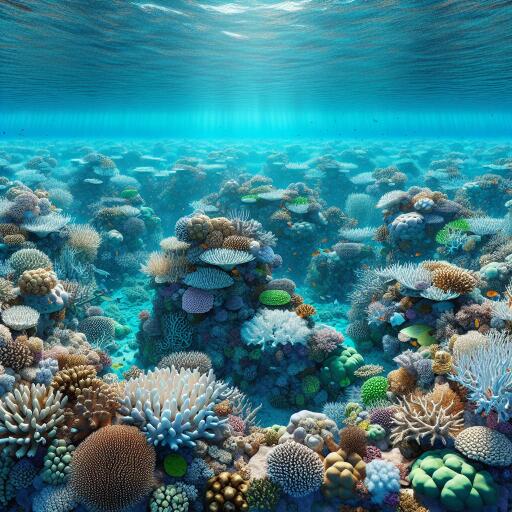
Australia’s Great Barrier Reef Suffers Unprecedented Bleaching Event
In a concerning development, the Great Barrier Reef, one of Australia’s and the world’s most treasured natural wonders, is undergoing the most severe bleaching event ever recorded. This iconic reef stretches over 2,300 kilometres along the Australian coastline and is renowned for its breathtaking underwater ecosystem, which includes over 600 varieties of coral and more than 1,625 species of fish.
Recent aerial surveys have revealed distressing evidence of widespread bleaching, affecting approximately 730 reefs out of the more than 1,000 that comprise the Great Barrier Reef. This mass bleaching event marks the fifth occurrence in just eight years, highlighting a distressing trend of increasing frequency and severity.
Understanding Coral Bleaching
Bleaching happens when corals become stressed by elevated sea temperatures, causing them to expel the symbiotic algae, zooxanthellae, which live in their tissues. These algae are crucial for the coral’s health, providing them with their vibrant colors and essential nutrients through photosynthesis. Without these algae, the corals turn white, and if the stress conditions persist, they can die, leading to a collapse in the ecosystem they support.
The Marine Park Authority, a federal body overseeing the reef, has indicated that the stress from this summer’s high temperatures has had unprecedented impacts across the entire ecosystem.
The Scene at Lizard Island
One of the most dramatically affected areas is around Lizard Island, a known biodiversity hotspot within the Great Barrier Reef. Here, the vibrant underwater world typical of the area has seen a significant decline, with many corals experiencing bleaching and death. Marine biologist Anne Hoggett, who has dedicated over three decades to studying the reef around Lizard Island, noted a significant increase in bleaching frequency. Where such events were once a rarity, occurring roughly once every ten years, they are now an annual occurrence, with this year seeing about 80 percent of sensitive Acropora corals experiencing bleaching.
Efforts to Combat the Bleaching
Australia has committed approximately 5 billion Australian dollars in efforts to enhance water quality, combat climate change, and protect threatened species within the reef ecosystem. Despite being a major exporter of fossil fuels, the country has recently set ambitious goals to achieve carbon neutrality. However, the effectiveness of these measures remains to be seen. The future of the Great Barrier Reef’s UNESCO World Heritage status is also under scrutiny, with evaluations expected later this year.
The Role of Climate Change
Experts agree that climate change is the most significant threat to coral reefs worldwide. The increased frequency and severity of bleaching events on the Great Barrier Reef serve as a stark reminder of the urgent need for global action to mitigate climate change’s impacts. The resilience of the reef is remarkable, but the unprecedented challenges posed by this summer’s conditions test its limits.
The fate of the Great Barrier Reef is a poignant illustration of the broader environmental crisis facing marine ecosystems globally. It underscores the immediate need for concerted efforts to protect these invaluable natural resources for future generations.





Leave a Reply